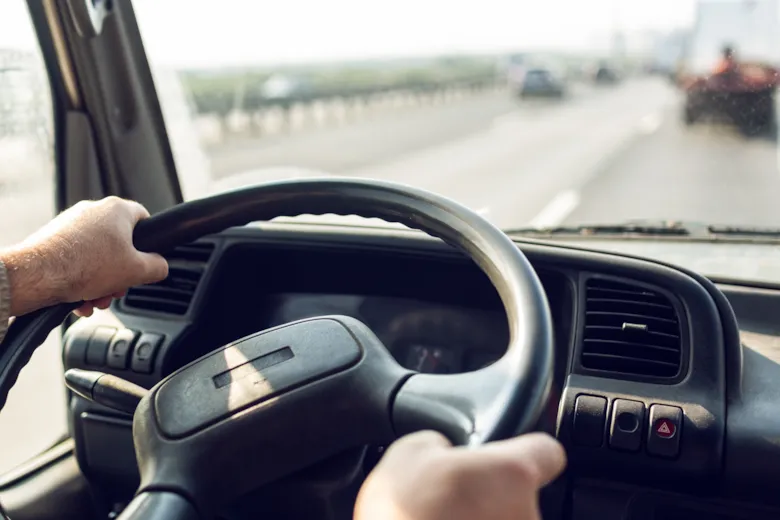This is the path to fossil-free
The world around us is changing, but our goal remains the same. By 2030, PostNord's transportation and operations will be fossil-free. And we’ve got a clear roadmap for getting there.
The logistics industry is a major polluter, with the largest share coming from road transport, which accounts for 76 percent of emissions in the European transport sector. But if you are part of the problem, you can also be part of the solution.
 Nima Ghaviha is responsible for PostNord's roadmap for reaching the company's ambitious climate goals. By 2030, both transportation and operations will be fossil-free. And by 2025, carbon emissions will be cut by 40 percent compared to 2020.
Nima Ghaviha is responsible for PostNord's roadmap for reaching the company's ambitious climate goals. By 2030, both transportation and operations will be fossil-free. And by 2025, carbon emissions will be cut by 40 percent compared to 2020.
"It is important that we transition to fossil-free for three reasons. Firstly, we see an increasing demand for green deliveries from our customers. Secondly, using green technology can be cheaper overall. And thirdly, it’s the right thing to do. For PostNord, for the planet, and for future generations," says Nima Ghaviha.
PostNord’s climate goals are ambitious and approved by the Science Based Targets initiative, meaning they are grounded in science and aligned with the Paris Agreement.
"I’m proud that our climate transition is on the forefront. As a leading logistics player in the Nordics, PostNord plays an important role. We can and want to be climate leaders, and for us, it’s clear that this is the path forward."
A clear plan
The roadmap is a concrete description of the changes required to achieve PostNord’s climate goals. Part of the work involves buildings and different modes of transportation, but the main part of the roadmap concerns road transportation, which accounts for most emissions. That’s also where technology is evolving rapidly, and where we need significant investment.
"We’re working intensively to reduce our emissions from road transportation. And several available technologies can lead to success. Primarily it’s about switching to battery electric vehicles and biogas vehicles or using biodiesel, HVO100, in our conventional vehicles," says Nima Ghaviha.
Challenges on the road to transition
Electrification and biofuels are thus crucial for reducing emissions. But the work is complex and fraught with challenges. Electric power works better so far for lighter vehicles that travel shorter distances. Charging infrastructure needs to be expanded, and conditions vary between Nordic countries.
Around 30 percent of PostNord's fleet of over 10,000 vehicles are electric, and 2 percent run on biogas. About 30 percent of our vehicles run on biodiesel, which can reduce emissions by up to 90 percent compared to fossil-based diesel.
Politically mandated regulations largely shape the conditions, presenting significant challenges. This societally important sector, which requires substantial investments and long-term commitment, faces a political landscape marked by unpredictability when it comes to incentives and requirements.
The ever-changing world is also one of the reasons why PostNord's roadmap is updated annually and incorporated into the company's business plan.
"Our roadmap addresses what we should invest in, how much, and the pace of our transition. It involves deciding which technologies are appropriate to invest in and when. There’s a lot of uncertainty, so we’re not betting on just one technology but on a mix of them."
Significant progress towards PostNord’s goals
"We’ve already managed to reduce emissions from transportation and operations by 30 percent compared to 2020. Up to 40 percent of our light vehicles that carry out last-mile deliveries are electric, and most of PostNord's heavy transports run on biofuels."
For Nima Ghaviha, it’s also about personal commitment.
"It feels good that we’ve come as far as we have. Social equality is one of my main drivers, and I believe that addressing the climate crisis is essential to achieving equality,” he says.
“PostNord can truly make a positive impact."